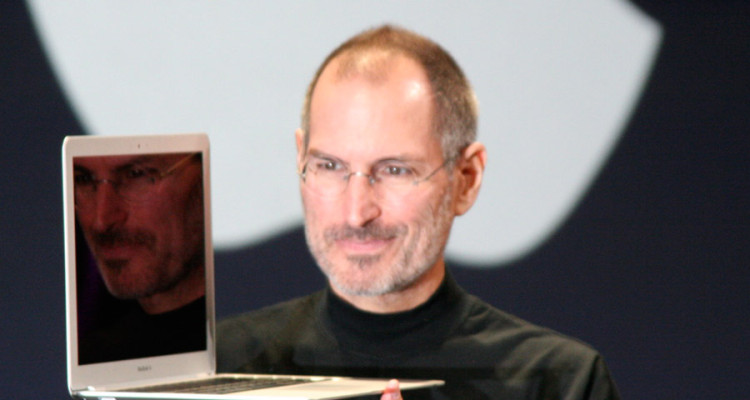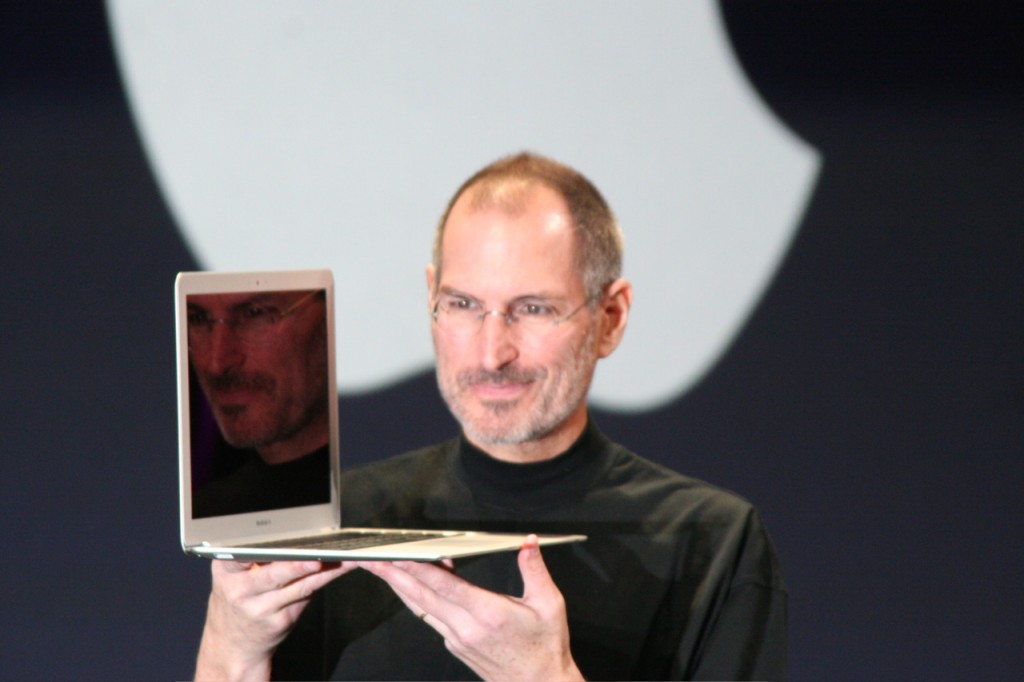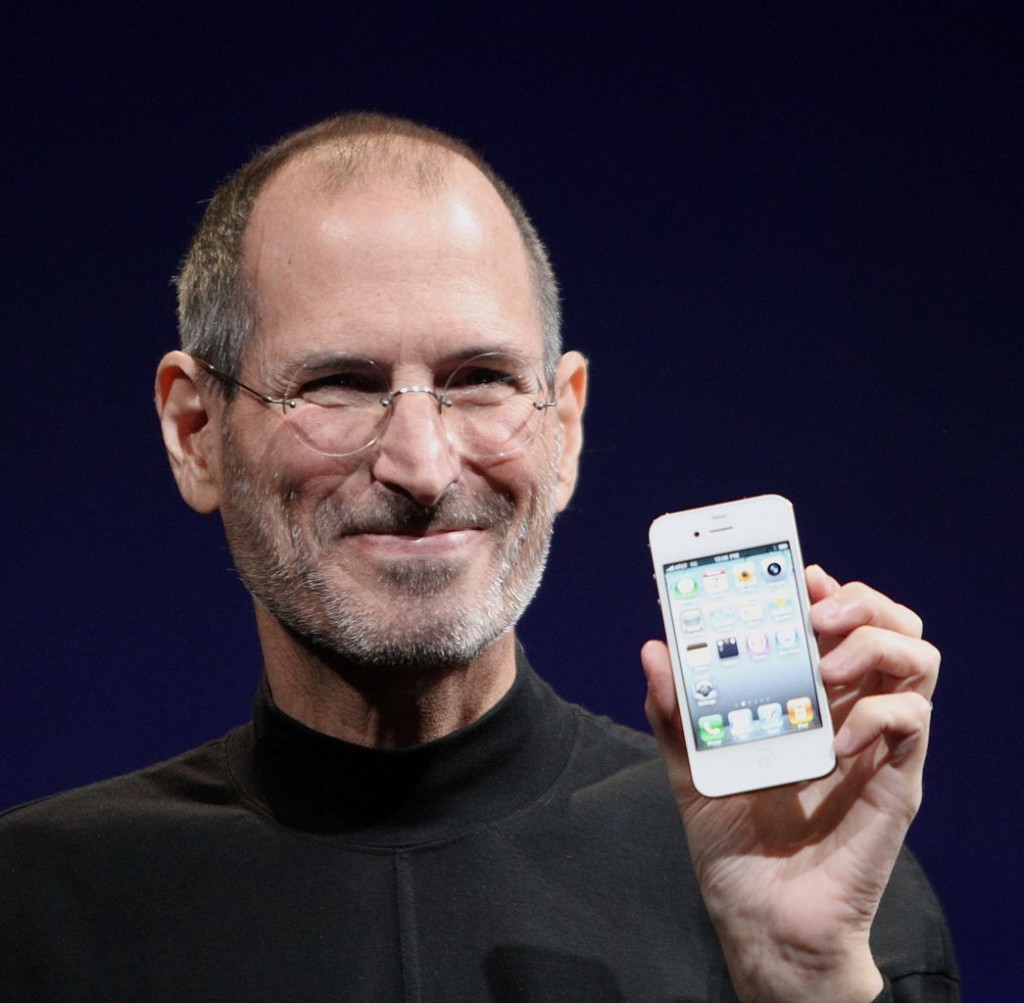The Man Behind the Money Monster
In September 2012, the possibilities were literally endless. At that point, Apple (AAPL) had been trading consistently at over $700 a share, the company had literally re-invented three new product markets over the past decade with its iPod, iPhone, and iPad, and there seemed to be nothing the company could not accomplish. The wizard behind the curtain during most of the path to the mountaintop, or in his case on center stage in front of the curtain, had been Apple’s legendary co-founder and idea man, Steve Jobs. A man described by many as a visionary, futurist, and by some as the “Father of the Digital Revolution”, Jobs had blazed a path of innovative and entrepreneurial success for over three decades before his death in 2011.
Jobs had been associated with Apple both directly and indirectly for all but one stretch, in the late 1980s and early 1990s to found Pixar Studios (heard of them, right? Toy Story anyone?). During the time he spent with Pixar, Apple experienced its biggest collapse in market share and was well on its way to bankruptcy by the time the board of trustees asked Jobs to come back.
And come back Jobs did, with a vengeance. He single-handedly championed the conception and design of a series of new forays into the desktop and laptop markets, helping get Apple computers ensconced in computer labs in schools across America and establishing Apple’s reputation for sleek, 2001-type designs that made the products instantly unique and recognizable among a crowded PC market.
Jobs followed up his leadership of Apple back to relevance by then unveiling, along with his team, three of the most transformative consumer products in the past century (and perhaps much longer). The iPod, released in 2003, capitalized on the emerging digital music trend before any competing company could release a viable alternative, and suddenly Apple owned digital music (although they have since been challenged by streaming radio and cloud music purveyors like Pandora and Spotify).
The iPhone, unveiled in 2007, redefined the smartphone market around its simplistic interface and responsive touch-screen. It became an irresistible buy, and remains the single most successful phone model sold to date (although now seeing significant challenges from Samsung). Finally, to put the icing on the cake of what had been a remarkable decade under Jobs’ stewardship, Apple unveiled its now-iconic iPad and created the tablet PC industry, which it has continued to rule since.
All of this led to that time in September 2012, seemingly not that long ago, when Apple’s shares were being speculated as well on their way to crossing the $1000 plateau. Investors were happily giving away the farm at $700 to get a piece of what they thought was a bulletproof stock. Unfortunately, one thing was missing from Apple in September 2012 that hadn’t been missing since Apple’s dark days of the late 1990s: Steve Jobs.
The Jobs Effect
Steve Jobs, as an innovator and entrepreneur, needs no analysis to determine and identify the litany of qualities and characteristics that make him perhaps the most successful business innovator of modern times. However, what is perhaps the most remarkable thing to examine in Jobs’ incredibly packed life story, is the effect on his company without his presence guiding it.
Indeed, those halcyon days of fall 2012 now seem like a distant and dream-like memory. While the company experienced a small reprieve recently with a better-than-expected-but-still-not-very-impressive earnings report, Apple’s fans and dedicated investors have watched in disbelief and astonishment as the company’s stock has lost a staggering 44% of its market value in just seven months.
While a number of factors have contributed to this plummeting fall, notably production issues in factories in China and Korea and vastly improved competition in the form of Google, Samsung, and Amazon, there has been one common factor in the story of AWJ (Apple With Jobs) and AWOJ.
Namely, Apple’s success has been largely based on the same effect that drives any common stock on the market. Over the past decade, with its astonishing product announcements seeming to come every few months, and with new features and devices being unveiled before adoring audiences at a rate fast enough to encourage addiction, the company managed to create an unprecedented level of expectation and confidence in its ability to out-think, and out-create, anyone. When before Microsoft had held sway over young programmers and hardware designers looking for an ideal job, Apple now had its pick of the most talented young thinkers and engineers in the world. It had both the money and the resources to stay years ahead of both its consumers and its competition. But then Jobs passed in 2011, and now two years later, the company remains without a landmark new product to follow up its last truly impressive unveiling, of the iPad 2.
The Jobs Crisis
So how can Steve Jobs, alone, be responsible for the widespread depreciation of (on some days) the most valuable company in the world? Because it was Jobs’ charismatic leadership personality, coupled with his ability to clearly understand and evaluate new paths for innovation and research years ahead of some of his chief rivals (ahem Mr. Bill Gates), that led to the fanatic fan following that truly drove Apple back to the forefront of technological prominence. People adore an iconic figure, even if that figure is prone to drift into techspeak frequently, and Jobs cut perhaps a more iconic figure than most of his contemporaries. Jobs knew how to put on a product unveiling, rolling out all manner of publicity stunts and genius advertising campaigns to keep his products in the forefront of the general pop culture conscience.
At his essence, Steve Jobs understood that by retaining the coolness factor to any new product, whether it be a bar of soap or a never-before-seen tablet computer, you instantly make your advertising and word-of-mouth efforts easier and more cost-effective. Steve Jobs, as much as anything else, understood as an entrepreneur that unveiling a product is as much an act of showmanship as a circus sideshow, with timing and choreography painstakingly designed to create an organic reaction in people to come back for more. Remember, the iPod was unveiled back in 2003, when Microsoft PCs still sat on far more desks than Apple computers, and when the music industry was still ruled by a few aging record companies.
Apple didn’t have the top-notch engineering school recruits, mountains of cash, and global supply chain it does now (although it had a good bit of each). What it did have was a visionary entrepreneur who was able to combine an ability to create and understand the products he was shilling, with a penchant for understanding how to make the revelation of a new external hard drive an event worth lining up for. As people search for answers as to how Apple can restore the confidence it is quickly losing in the long wait for a new Next Big Thing, perhaps the biggest question is not whether the company can continue to stay ahead of everyone else (in fact, Samsung and Google have already been catching up), but whether it can re-invent itself successfully for Life After Jobs.
More than anything, this dilemma facing Apple currently is a reaffirmation of the importance of honing entrepreneurial and innovative skills early in one’s career. As someone like Steve Jobs can teach us, by combining these well-nurtured understandings of how to merge business with fun, and innovation with excitement, we can make ourselves not only successful, but indispensable to the ideas we breed.
If you enjoyed this story, don’t be stingy. Share it with others please 🙂
Go cash in on today,
Adam

















